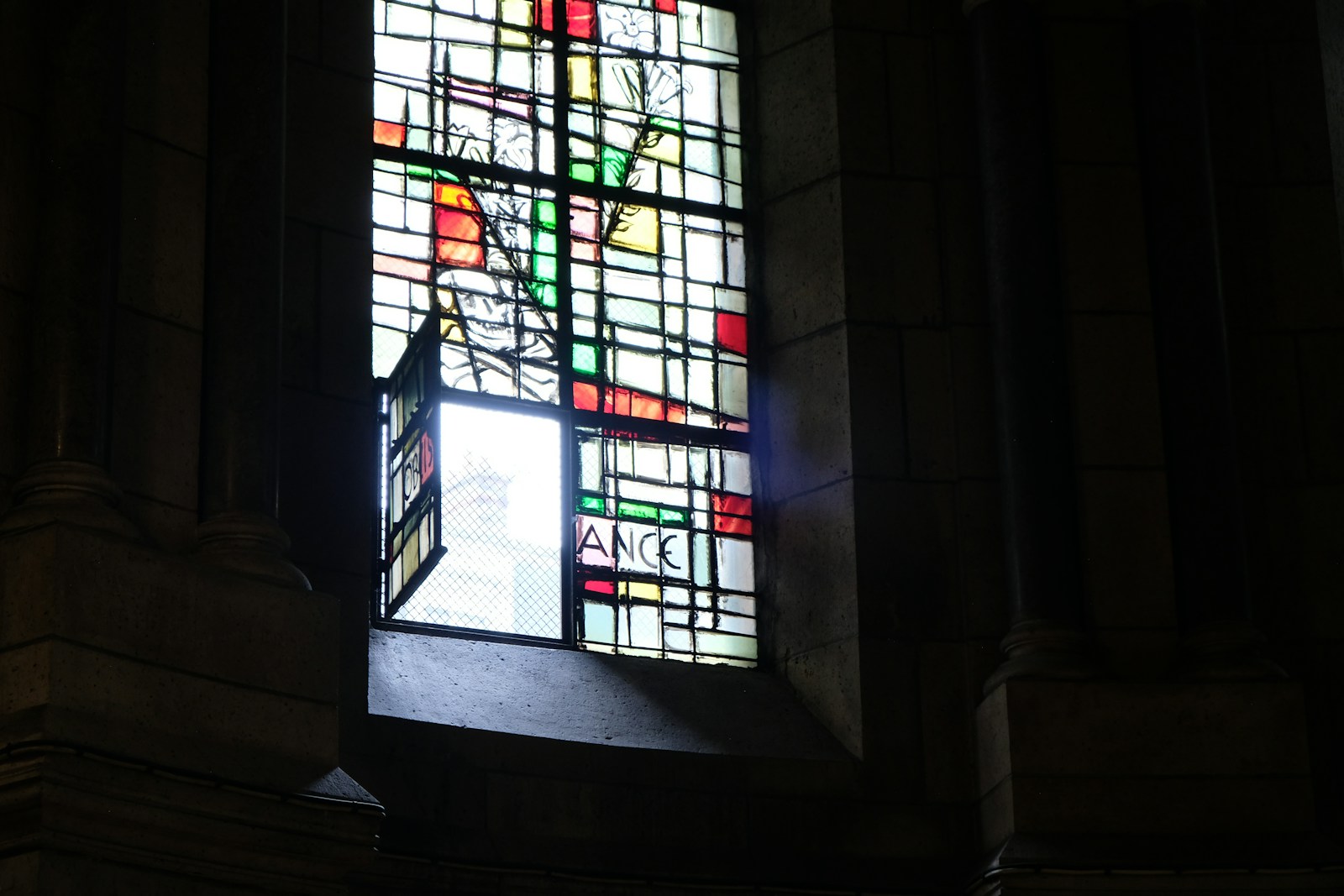
How many of us call ourselves spiritual but not religious? How many of us believe in the possibility of transformation, the necessity of community and the existence of a benevolent beyond, but perceive church to be a place of irrelevance et best, judgment and hypocrisy at worst? And then how many of us have been ignored, rejected or even abused by religious communities? At this moment, mainstream Protestantism in Europe and North America is living an extended funeral. The relationship between faith and culture has greatly shifted over the past generation. The church is seen as having little to do with daily life. Wars are being waged, the pandemic has taken a heavy toll on us all, and the planet is on the brink of self-destruction. The world is in need of a love like it has never known. People are thirsting for connection, for authentic relationships, for trust, for recognition of their God-given value as human beings. And they are not finding it in church.
I have long dreamt of a church to which I would be proud to invite my interfaith and non-religious friends. I have long pondered the question of why church is a nourishing place for me and not for them, and I think that part of it is a question of negative experience and perception. It seems to me that church culture, particularly evangelical culture, tends to create barriers between people inside the church and people outside the church. I have been on the receiving end of much spontaneous evangelism, most of which feels quite unpleasant to me. But why should it be disagreeable to receive the Good News? I think that this is because much evangelism begins with the assumption that the other is unconverted and therefore needs to be converted. The other is, by default, inadequate.
Over the years, theologians have paid increasing attention to language of otherness. They have worked to promote the full recognition, inclusion and representation of numerous groups of people: women, ethnic minorities, indigenous peoples, LGBTQIA+, etc. And yet, much liturgical language still insists on distinguishing between “us” (those in the church) and “them” (those out there). One Sunday morning, I was in the middle of praying a prayer of intercession for refugees and others who have experienced war. Suddenly, I realized that the well-meaning prayer I was praying could not be prayed in the same way by the Eritrean refugee sitting in front of me. My prayer, which was supposed to be a prayer on behalf of the whole people, was a prayer of the fortunate for the unfortunate. It also presumed that the fortunate were part of the church while the unfortunate were necessarily far removed from the church. This unspoken association between prosperity and the parish has continued to disturb me as I continue to discover how deeply ingrained it is in church culture.
For the past few years, the United Methodist Church in Switzerland has been working to move away from a culture of doing for others and toward a culture of doing with others. Doing for implies an imbalance of power and, in extreme cases, of intrinsic worth. Doing with recognizes that the “other” comes with a God-given value, identity, talents, and is already capable of sharing even before receiving whatever wisdom or experience I have to offer. The model of doing with sees mission as mutual hospitality, not a one-way street.
All of this has contributed to the ideal church that I hold in my heart: a community to which I would want to invite my friends, a community that was rooted in the local life around it, an open community with permeable walls, a community where people are valued and loved for who they are, not for who they could or should be, a community where people are encouraged and enabled to develop their individual gifts. I never expected it to come true, but only hoped that I might catch glimpses of it from time to time. I certainly never intended to found a new community.
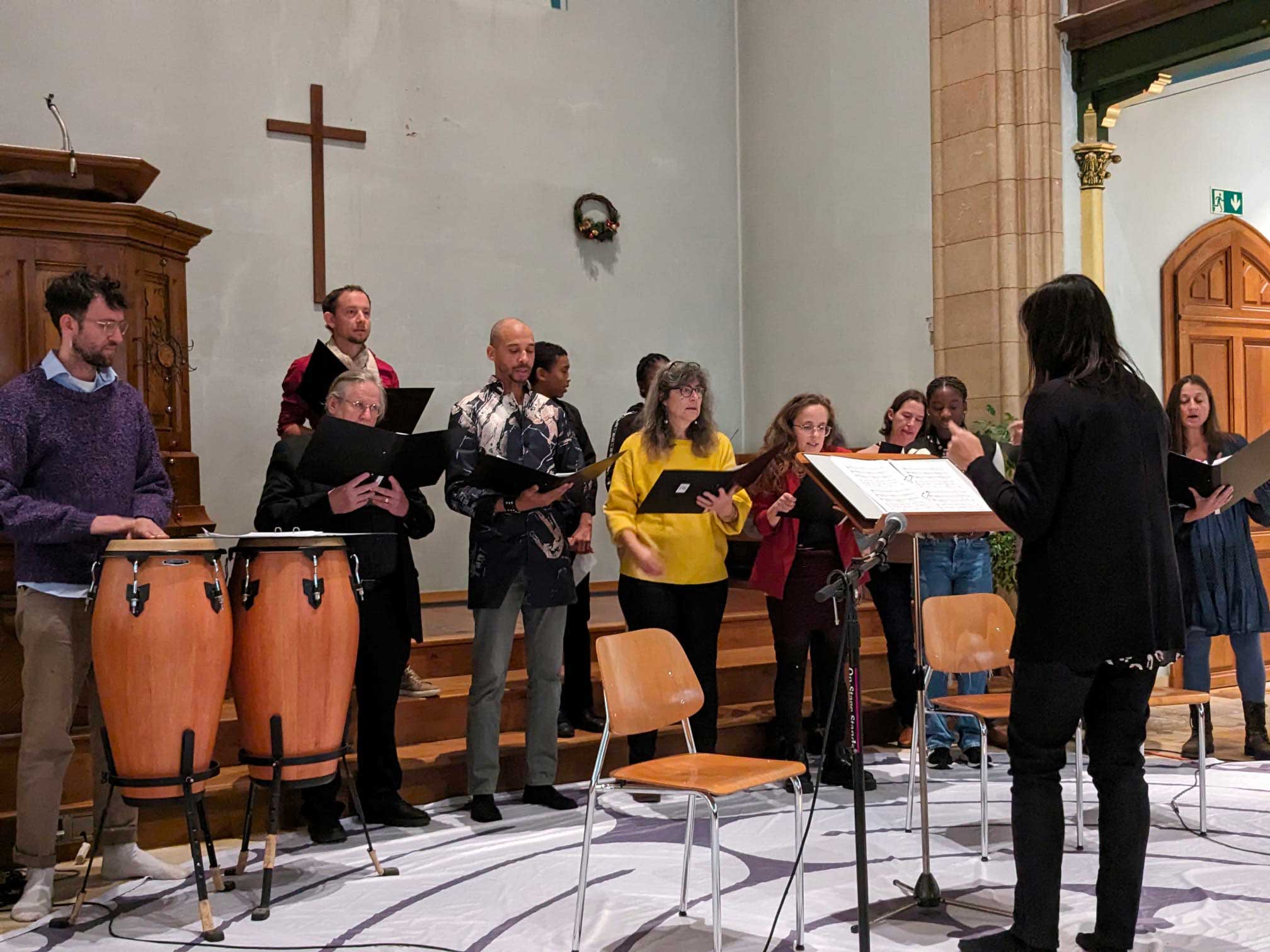
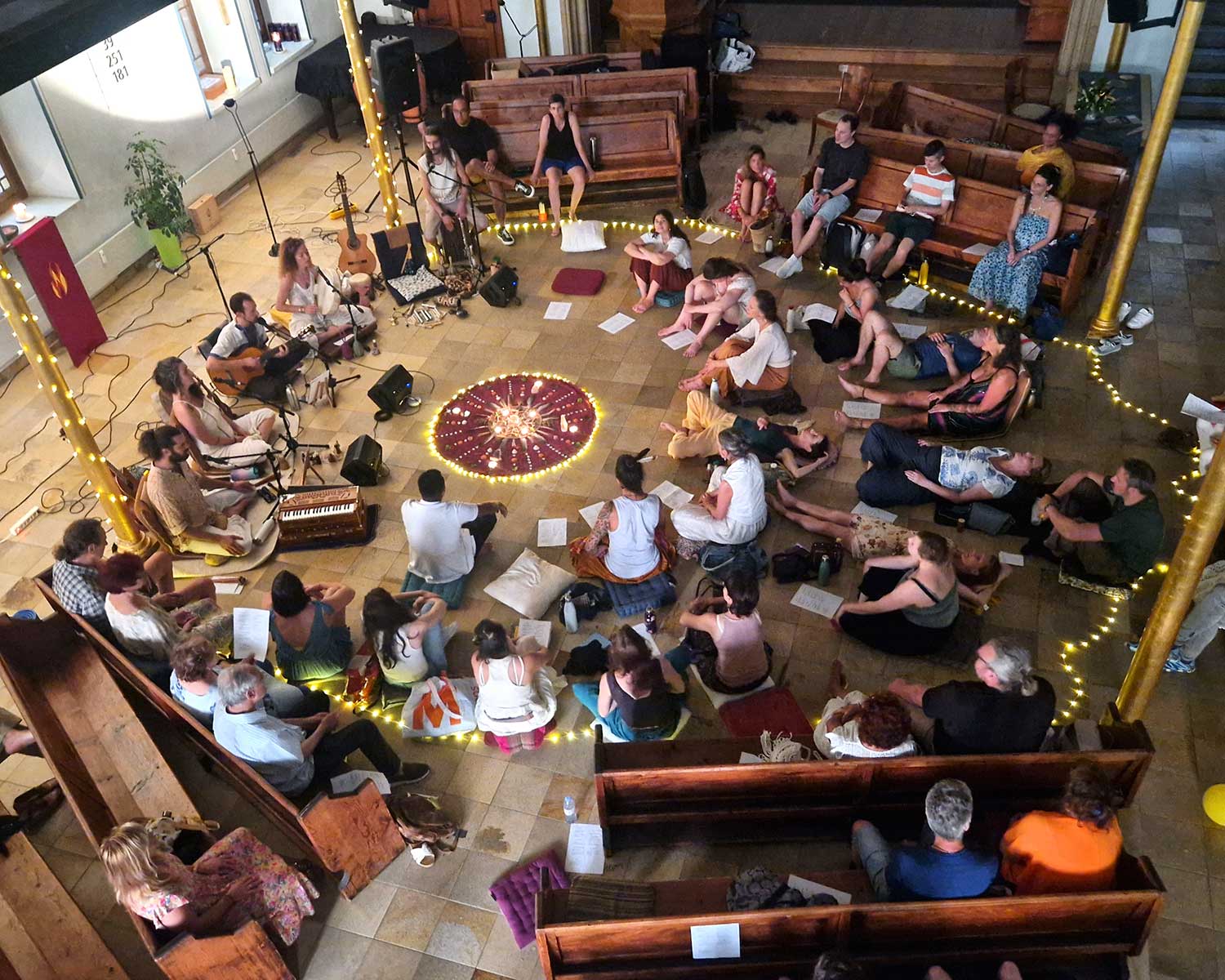
I became pastor of the Lausanne Evangelical Methodist Church in February 2015. When I arrived, there were between eight and ten congregants on a Sunday morning, and one child according to the statistics. Two years later there was a Sunday School with twenty children on the list and over thirty people on average in the worship service. This peak was not sustained for very long, and post-Covid, there were several Sundays with between four and six people at worship. The pandemic and the sudden death of two key leaders did not help. There was much to be discouraged about, and at the same time, there were many things that really inspired me about this community. Despite only having twenty-some members on the list, there was astonishing ethnic diversity, with members having origins in Switzerland, Chile, Brazil, Congo, Angola, Eritrea and Benin. The most memorable events of the community almost always featured food and clothing from around the world.
At a certain point, I began talking with other Methodist pastors in Suisse romande. We wondered if there was a way to work more closely together. The Methodist church in Switzerland provided us with two community development coaches, and we began to work intensively over the course of a year. At one memorable brainstorming session, we realized that several among us shared a very similar vision of what church could be like. We began to dream of starting a new community together, and little by little a vision emerged: a vision of a mosaic where each piece had its own shape and color and texture; and a vision of a village where each villager was encouraged to develop her own gifts and talents for the wellbeing of all. As Paul reminded the Corinthians, each part of the body contributes to the functioning of the whole. We cannot and should not all be alike.
Mosaic Village United Methodist Church opened in September 2022. It was founded by three pastors – Iris Bullinger, Claudio Da Silva and myself. Members of the existing Methodist community in Lausanne voted to become a part of the new community. We remain grounded in a Wesleyan theology of grace and social holiness. Our community places a high value on awe, unconditional welcome, unity in diversity and transformation. We have established our mission to create transformative moments and spaces to
Our distinctiveness lies less in the form and structure of the community and more in the intention which animates what we do. We place great emphasis on interreligious collaboration, right relationship (justice, compassion and solidarity) and proactive welcome to those who are too often dehumanized in church and society. The testimony to this welcome is the enthusiastic participation and feedback of people from a wide spectrum of cultures, spiritual backgrounds, and ages. Our mission also shapes the way that we do worship. Far from being an event where we are spectators or consumers, worship is for us a laboratory where we learn and experiment together how to be just, compassionate, courageous – in other terms, Christlike. While we are still in the early stage of our existence, and while certain challenges remain (notably that of inhabiting an expensive historic building), we continue to trust in the Spirit, whose surprising and mysterious ways have brought us this far.
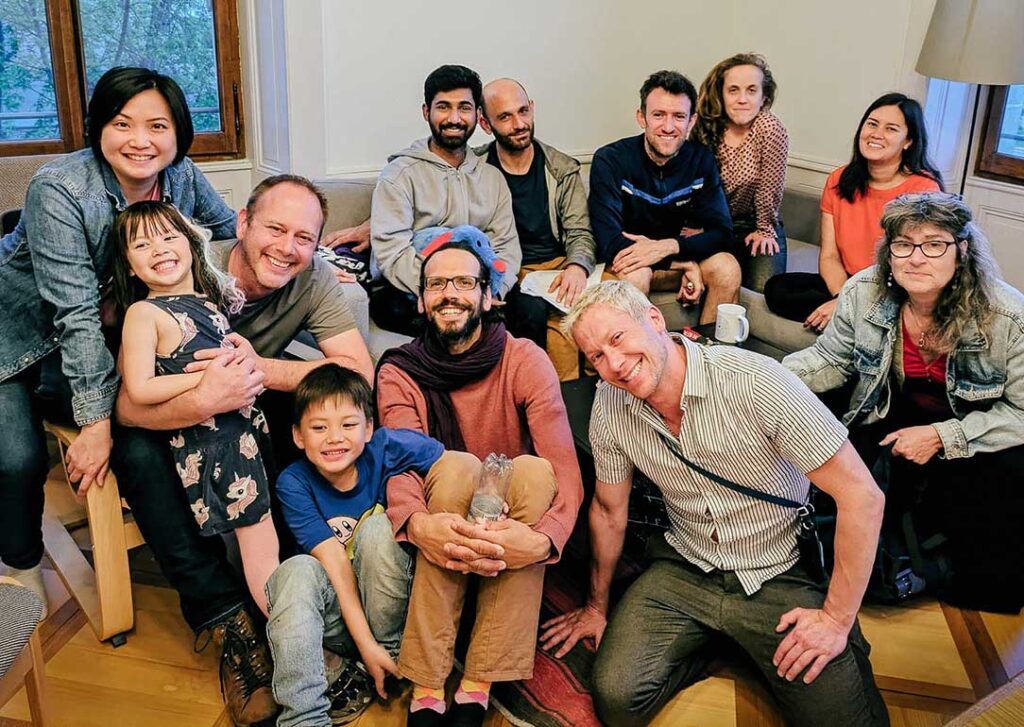
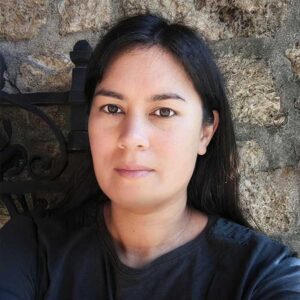
Erika grew up in Kansas, USA. Trained in music at Prague and Emory University, she earned a Master of Divinity (Yale, 2007) and then a PhD in the history of Christianity (Boston, 2016). After serving in seven Methodist parishes in the United States, she was pastor of the Evangelical Methodist Church in Lausanne (2015-2022), before helping to create Village Mosaïque.